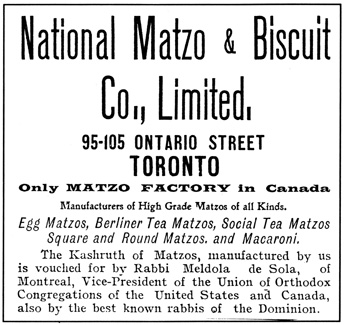 In Lola By Night (paperplates books), a second novel from Montreal-based author Norman Ravvin, the heroine, Lola, is a young bestselling romance novelist from Barcelona who sets off on a quest to learn more about her late father and his connection to a decades-old murder.
In Lola By Night (paperplates books), a second novel from Montreal-based author Norman Ravvin, the heroine, Lola, is a young bestselling romance novelist from Barcelona who sets off on a quest to learn more about her late father and his connection to a decades-old murder.
Lola’s existential journey takes her to Vancouver and New York, where she consorts with former associates of her father and other oddball characters.
Lola is a tough character to pin down. In Spain, she’s a hugely successful but guardedly pseudonymous writer of potboilers who bolts from her burgeoning celebrity. In North America, she’s a happy cipher-cum-sleuth who tries to resolve the questions about her father that have persistently nagged her. Wherever she goes, she seems a happy-go-lucky, minimalistic figure who is as much of a mystery as the one she is trying to solve. “She’s one of those people who keep moving and keep changing,” Ravvin explained.
The book recounts her experiences in a slick, quirky, subtly humourous narrative, the style of which seems as unique to Ravvin as a fingerprint. He is, after all, the writer whom the New York-based Forward dubbed “eccentric, imaginative, and darkly funny” after his short story collection Sex, Skyscrapers, and Standard Yiddish appeared in 1997.
A second intriguing personality in the novel is Herman Rossman, a Jewish beat poet who is a comical throwback to the ‘40s. According to Ravvin, Rossman was meant as a sort of surrogate role model for Canadian Jewish writers.
“He’s a kind of imaginary forebear. He’s the kind of writer they had in the United States but that we didn’t have here. He’s a marginal street poet — actually, more like a cross between the beats and the Yiddish poets that came before.”
Like Lola, who brings a European sensibility to her perception of North America, Rossman seems to inhabit two worlds. Ravvin characterized him as a “straddling figure” balanced between 1940s Yiddish culture and contemporary Canadian culture. “He’s a kind of person who’s got his feet in both worlds — in that way, he sort of mirrors myself. It’s another way of thinking of being a Jewish writer in Canada.”
Ravvin is at least as peripatetic as his title character. Born in Calgary in 1963, he holds a PhD from the University of Toronto and is the current chair of the Institute for Canadian Jewish Studies at Concordia University in Montreal. He’s also lived in Vancouver, taught creative writing in Fredericton, and seen enough of the rest of the country to have penned a travel book — Hidden Canada: An Intimate Travelogue — for Red Deer Press in 2001.
Like his fictional creation Rossman and many genuine Jewish scribes, Ravvin sees himself as straddling a chasm between two worlds — a chasm widened, perhaps, by his strong Old World orientation and by his Yiddish schooling. His father came from the region south of Moscow, his mother from the region north of Warsaw; both came to Canada as children with their families in the decades before the Second World War. They sent him to Calgary’s now-defunct Peretz Yiddish Day School, from which he was among the last group of students to graduate.
His Yiddish background “has made a huge difference” in his life, he said. “It ended up becoming an ongoing interest for me and a resource for my writing because I became interested in Yiddish literature, which a person of my age normally wouldn’t have access to. I’m sort of an oddball in that way.”
Ravvin, who teaches a course at Concordia titled “Ethics, Politics and the Canadian Jewish Community,” recently delivered a paper about the early Yiddish version of Elie Wiesel’s Holocaust novel Night and how it was altered in subsequent French and English translations. “If I were a rich, rich man, I’d do a lot more of that than other things I do, because I enjoy that a lot.”
His first novel, Café des Westens (1991) focuses on a Jewish family in Calgary and was “a more conventional effort to try to convey the role of Jewish history in a family.” A book of essays about literature and the Holocaust — A House of Words: Jewish Writing, Identity and Memory — appeared in 1997. Also published in 1997, the short story collection Sex, Skyscrapers, and Standard Yiddish (paperplates books) stands among his most amusing, inventive and quirky literary accomplishments.
The prolific scholar-writer has also made a mark as editor of at least two notable books of Jewish interest: Not Quite Mainstream: Canadian Jewish Short Stories (2001) and Mordecai & Me: An Appreciation of A Kind, by Joel Yanofsky (2003).
The latter is the first in a projected series to be co-produced by Concordia’s Institute for Canadian Jewish Studies and Calgary’s Red Deer Press. Ravvin and historian Richard Menkis are currently co-editing another volume in the series, The Canadian Jewish Studies Reader, which will offer “a real interdisciplinary approach to contemporary Jewish culture.” Future titles will include fiction, non-fiction, popular history and memoirs.
He’s also in the midst of penning a second collection of stories, many focusing on the relationship between a father and young son; Ravvin is the father of a 3-1/2 year old.
“I’m using these stories as a way to try to capture him,” he said. “It’s a project I’m enjoying very much.” ♦
© 2004






